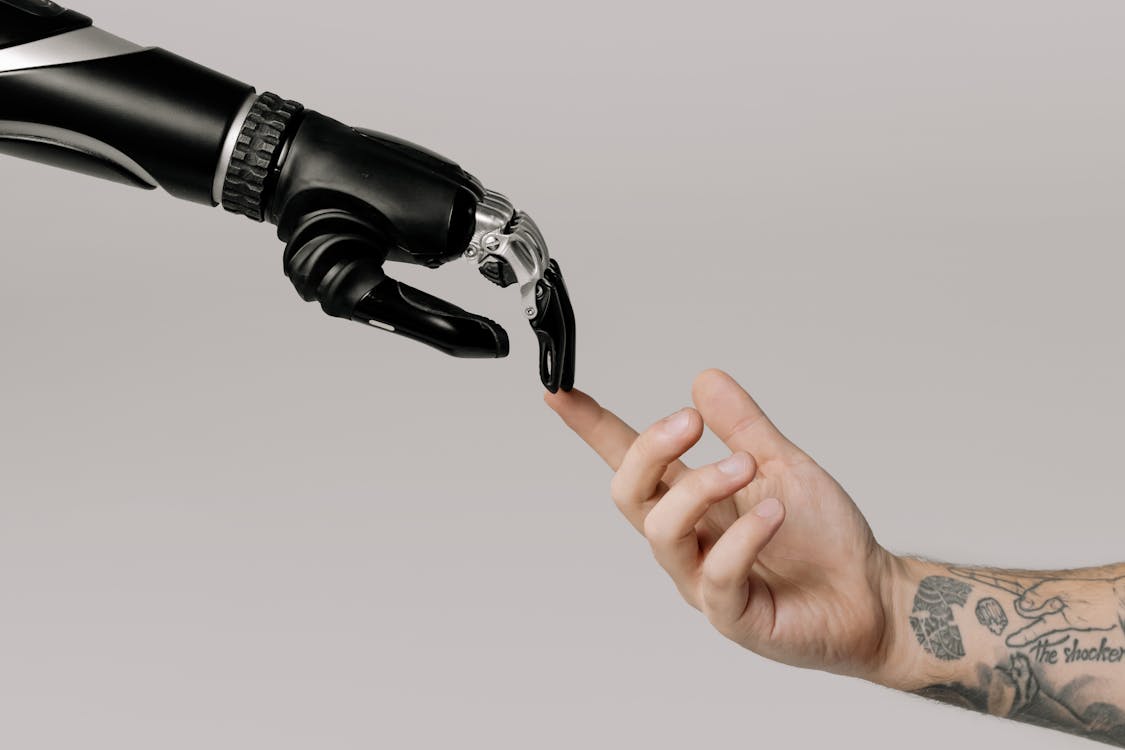
Even just a decade ago, the idea that artificial intelligence or AI would take over our jobs sounded something straight out of a sci-fi movie. After all, how could a computer or program do complex tasks and produce human-like results? This was the thought people had in their minds regarding this whole situation.
A few years later, the same people who thought AI taking over our jobs was an impossible dream started getting scared. AI could now do tasks like writing short stories, generating small sound clips, and even editing images in a small capacity. Nothing to worry or panic about, right?
Fast forward to 2023, and AI is writing books, creating images and animation, and writing SEO content. The panic is spreading right now, particularly for SEO content writers. This is mostly because of how ChatGPT has grown in popularity. You tell this AI to write a blog post for a target audience using a certain target keyword and other related keywords, and it’ll manage to do just that. However, is this enough to replace human SEO content writers?
Well, the industry says no, and here’s why.

Search Engines May Not Rank AI-Generated Content
Sometime last year, Google dropped subtle hints that it could be flagging AI-generated content on its search engines. That means the platform won’t show you any AI-generated content, at least not at the top of Google Search.
Google is not the only platform that is considering this. Most search engines are uneager to boost AI-generated content on top of their search results. That’s because, according to these search engines, their users are often misled by such AI-generated content. AI content often tends to provide content with little to no value to the reader. It’s possible that the blog post title says one thing, whereas the content is entirely about something else.
Since AI content is so misleading most of the time, search engines do their best to detect and flag such content so that users don’t have to go through them when looking for something very specific.

Businesses Want Humans to Write for Them
Since AI content is unlikely to get ranked, businesses prefer human writers over them. That’s why you’ll find the top content providers producing SEO content written by humans. Content-providing firm WriterArmy points out a crucial necessity for this.
The agency highlights how having a pool of actual writers allows them to vet and pick the ones best suited for a particular type of business or industry. That way, these writers have better knowledge regarding said business or industry and can create informative, unique content with a human touch to it. You can’t do the same with an AI.

Chances of Plagiarism are Usually High
AI needs to train itself using existing data. In the case of SEO content, it needs to train itself using existing blog posts, articles, and written content. This means the AI is likely to generate long sentences or even entire paragraphs that have been plagiarized from the source material. The content will be paraphrased or rearranged if not directly copied and pasted. Even then, it might count as plagiarism.
Since plagiarized content is always flagged on search engines and can’t rank for SEO, many businesses and brands avoid using AI completely to generate their content.

Chances of Misinterpreting Numeric Data are High
Because of how numeric data is arranged on CSV or other data files, the AI has difficulty interpreting them properly. Because of that, they may suggest inaccurate data.
For instance, let’s say there’s a data point where it’s stated that a car has 500HP. However, there is also data that says that the car has another upgraded variant that produces 700HP. Now, if you ask the AI about the upgraded car’s HP, it might end up suggesting 500HP, mostly because the 500HP is the most common one out there or has been mentioned more times on the internet or in the data file than the 700HP variant.
This is how AI might end up misinterpreting numeric data.

AI Can’t Retain the Latest Information or Recent Data
Most AI you’ll see around today have been trained using datasets that have no recent data. That means if you tell the AI to write about something or include information from an incident that happened a day, week, or even a few months ago, it will fail to do so.
For an AI to use recent data or statistics, it needs to be very powerful, which means it must have the capability to crawl millions of data points across the internet to find recent data. However, this is not yet possible for most AI-powered content writing tools.
Based on all these reasons, it’s easy to see why the SEO industry is so confident that AI will not replace SEO content writers, at least not for the next few years. What happens afterward, however, is something to look forward to.